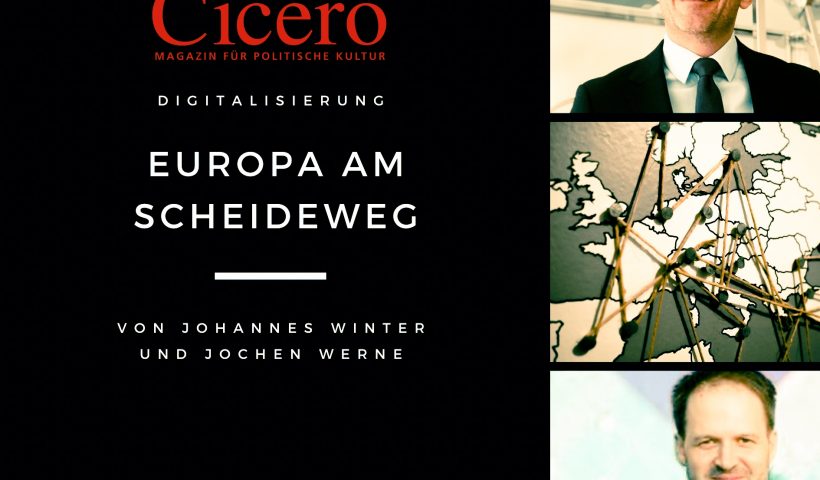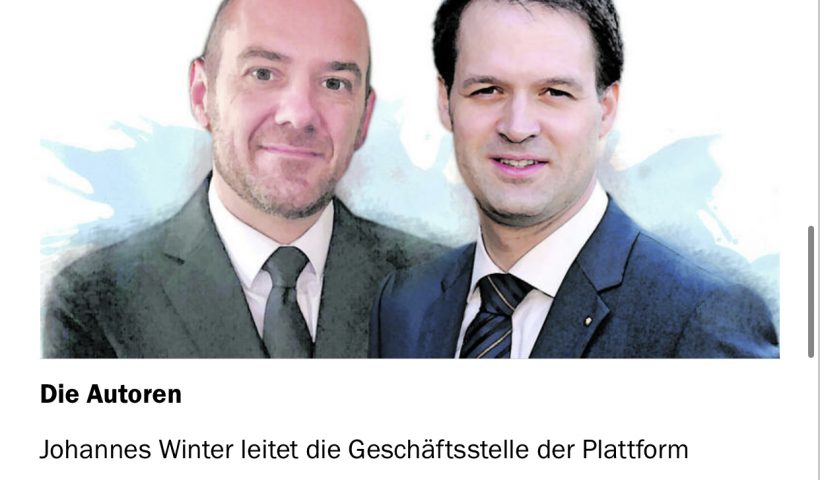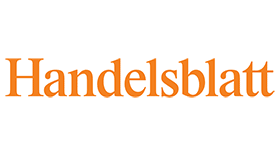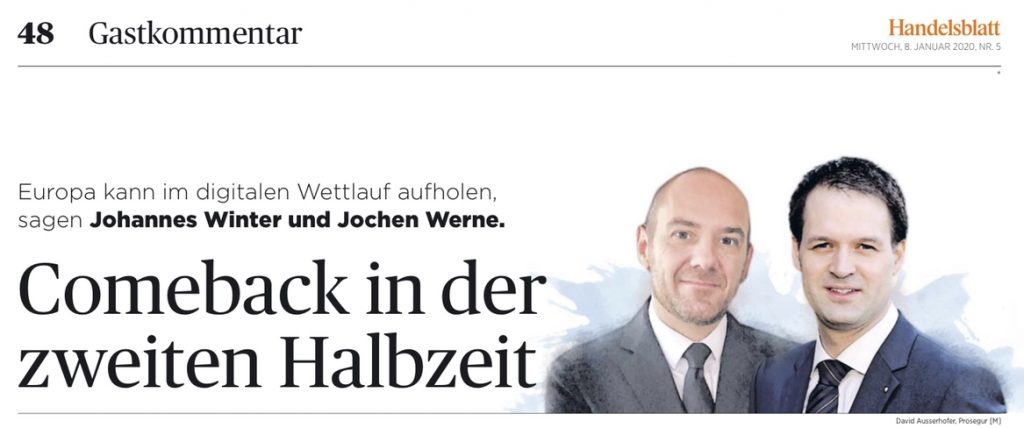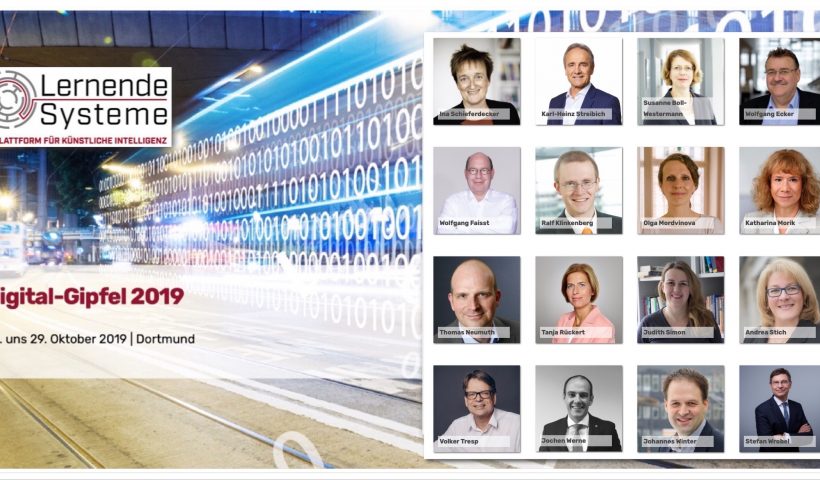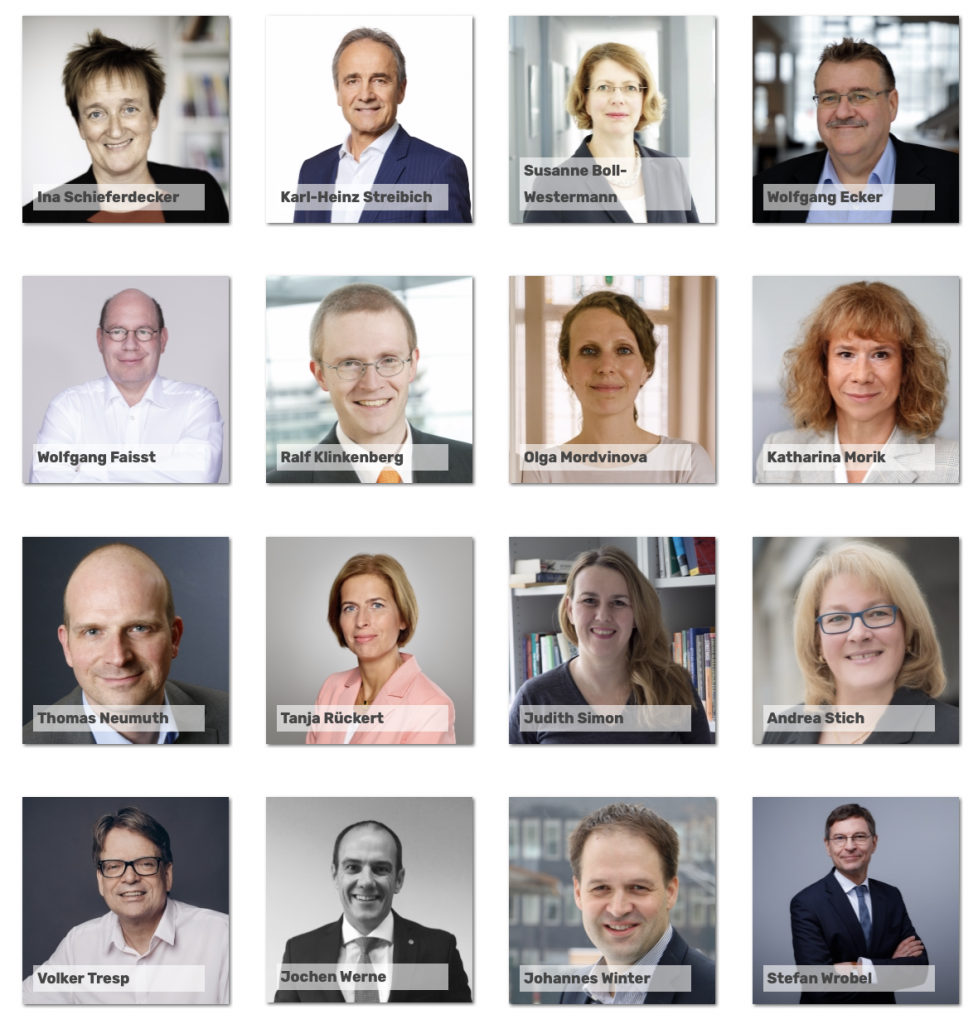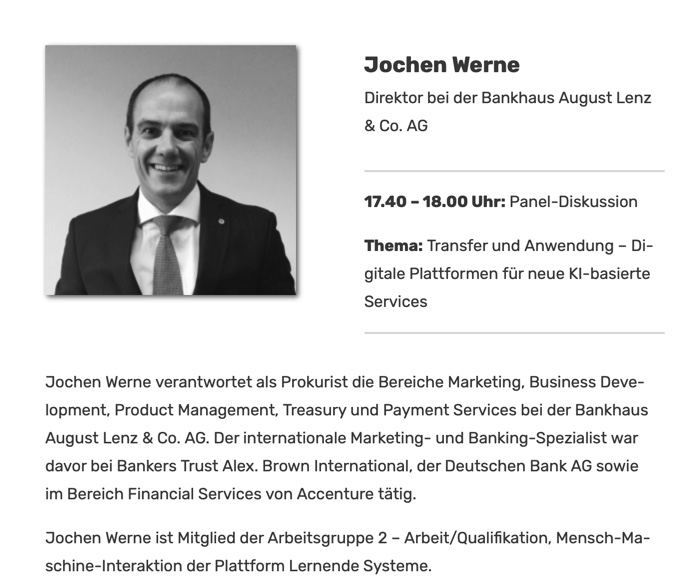by JOHANNES WINTER and JOCHEN WERNE
23 August 2020
Original in German published online in the Cicero – Magazine for political education. Please click here
Translation made by DeepL.com
In the first half of digitisation, the USA and China have mercilessly left Europe behind. But nothing is lost yet: a plea for sovereign data infrastructures and a transformation to service-oriented value creation.
Europe is at a crossroads – once again. This time it is about nothing less than the preservation of the continent’s sovereignty, at least in technological and economic terms. It is therefore not surprising that “Digital Sovereignty” is a focus topic of the German EU Council Presidency. Europe’s largest economy exemplifies the current challenges in the midst of a global trade conflict and quasi-monopolies of American and Asian platform companies: because Germany’s strength as the world’s equipment supplier is under scrutiny.
Since the 1970s, the first wave of digitalization has been underway, characterized by the use of electronics and IT as well as the automation and standardization of business processes. It has been driven by exponential growth in performance parameters such as communication networks, memories and processors, which is typical for the IT industry. As a manufacturer of machines, plants, vehicles or process technology, Germany has benefited considerably from this. “Made in Germany” is a worldwide promise of quality. But for how much longer? Or to put it another way: How can we transfer this promise into the digital age?
The real and virtual worlds are merging, an Internet of things, data and services is emerging in all areas of work and life. Automated systems driven by artificial intelligence learn during operation and increasingly act autonomously, as collaborative manufacturing robots, robo-advisors or intelligent harvesters.
Europe is falling behind
Consumer platforms such as Amazon, Alibaba and Facebook have dominated the first half of digitisation. With the exception of the streaming service Spotify, Europe is hardly present in the B2C platform markets. The second half includes the industrial sector, both the digitisation and networking of production (Industry 4.0) and the expansion of products and services to include personalised, digital services (digital business models).
So far the stocktaking – what is still outstanding, however, is the comprehensive implementation, without which Europe will fall further behind in the global race. What levers are there for Europe to score points in the second half and thus maintain competitiveness and self-determination? Two aspects seem particularly important:
Without a sovereign data infrastructure
Once developed, software platforms have process costs that approach zero. This makes it easy to aggregate huge amounts of data, learn from data with Artificial Intelligence and use it to develop digital business models that can be scaled exponentially across countries and industries. Google’s search engine with a 95 percent EU market share is an example of both innovation leadership and quasi-monopoly. In order to gain sovereignty over data and data infrastructures, digital sovereignty is needed: from hardware and software components to communication networks, cloud infrastructures, data rooms and platforms.
European efforts such as the policy- and business-driven project “GAIA-X” deserve broad support, even if success is by no means certain. Self-determination does not mean self-sufficiency or the exclusion of dominant competitors. On the contrary: Europe’s path must be determined by diversity, openness and decentralization, not by isolation. A glance at the regional distribution of medium-sized world market leaders is enough to understand that Europe’s technological and entrepreneurial pound is not in the hands of a few large companies.
Germany has domain expertise
Appropriately, Europe should focus on building open digital ecosystems based on a common reference architecture and defined standards, enabling technological interoperability, providing distributed cloud and edge services and relying on European values such as trustworthiness, security, privacy and fairness. In the industrial sector, the race is still open, since production-strong and product-centric countries like Germany have domain expertise and industrial data such as machine, process, user and product data to which hyperscalers like Google and Amazon have so far had only limited access.
But to achieve sovereignty, Europe needs access to the cloud and data infrastructures, whether in the mechanical engineering or mobility sector. And it needs European regulation as well as state and companies as active consumers of European technology and business offerings. To do so, they must be secure, high-performance, cost-effective and competitive. A high standard! However, if Europe chooses the passive path, this endangers economic competitiveness, entrepreneurial freedom and, in the medium term, our prosperity.
Value creation shifts in favour of the platform operators
We know from the consumer world that investor-financed technology start-ups attack established business models in all domains, act as a platform operator between supplier and customer, define rules, standards and interfaces and benefit from network and economies of scale. As a result, value creation shifts in favour of the platform operators, traditional providers of products and services are degraded to suppliers. Operating and controlling platforms and marketing digital products and services on them is therefore a core prerequisite for Europe’s survival in a digital economy.
Since no single company in the industrial environment has the know-how and data to be successful in the digital age, digital value-added networks are the solution. The “Learning Systems” platform, led by the Federal Ministry of Education and Research and acatech, recently highlighted a dozen success stories of digital ecosystems in Germany. One example shows how resilient manufacturing is created when machine builders can minimize production stops with the help of IoT and AI service providers by means of data-based prediction.
Process optimization is scalable
If the machine nevertheless comes to a standstill, a contingency insurance policy is taken out. In an Industry 4.0 logic, this creates a flexible production line that almost never stops and is therefore even more profitable. And: This process optimization including the digital business model is scalable and does not remain an isolated solution. Another example shows how agricultural APPs and IoT platforms enable cross-manufacturer data exchange with agricultural machinery, even if farmers and contractors use machines from different manufacturers.
The entire vehicle fleet can thus be optimized via one platform. This reduces complexity and enables medium-sized technology leaders for sensor systems, seeds or harvesting machines to scale in a trustworthy platform environment without having to take a greater entrepreneurial risk in building their own platforms.
Europe must speak with one voice
Many more such examples are needed – and they are also emerging in federal Europe. The realization is there, after all. But: In order to play an important role in the world, Europe should not only become faster, but should also speak with one voice, whether in enforcing a level playing field or in international standardization.
Completing the digital single market is also important to enable what China and the US have ahead of us: huge consumer markets in which domestic providers can scale. Europe is at a digital crossroads. Let us take the fork in the road to self-determination!

